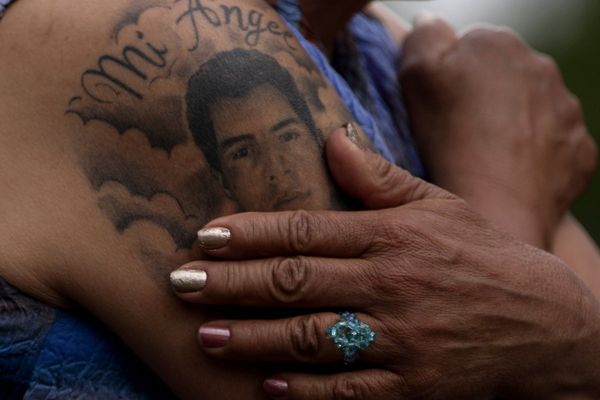
Last September, newly elected assembly member Nour Soltan posed his first question to the town assembly of Shonai, Yamagata Prefecture.
"What does the town think about accepting foreign workers?"
His commitment to the issue could be heard in his voice.
Soltan, 50, successfully ran for a seat in the assembly last summer. Born in Syria and raised in Egypt, he is now determined to live life as a Japanese, and sports a topknot in homage to the sumo wrestling he loves.
Soltan moved to Egypt with his family when he was 12 because of constant instability in his Syrian homeland. In Egypt, he swam competitively and coached Paralympic swimmers for the 1996 Atlanta and 2000 Sydney Games.
In April 2001, he applied for the Japan International Cooperation Agency's invitation program, and spent 10 months in Tsuruoka, Yamagata Prefecture, teaching swimming to children.
Unable to forget Japan's rich nature and food, he decided to live in Japan and returned to the country in 2003.
After studying swimming training theory at University of Tsukuba, he called up about 10 swimming schools in the Kanto region asking for a job, but kept being rejected with such comments as, "Try elsewhere." Even when he did get through to managers, he was told they didn't hire foreigners.
He was depressed, faced with the deep gap between Japanese and foreigners. He was most saddened by the fact that he couldn't utilize his skill as a swimming instructor, acquired through long training.
He decided to live in Tsuruoka, where he has acquaintances, and started working at a car parts factory. In 2007, he opened an Arab restaurant and ran it for four years. He has been involved in the used car business since 2011.
He hopes to make his beloved country, Japan, a better place. "To change society, I need to participate in politics," he thought, and acquired Japanese citizenship in 2013.
He moved to Shonai in 2016, not to be elected because he had found a traditional kominka farmhouse that seemed comfortable to live in. But this move led him down a new path.
In a town with a population of about 20,000, only 15 people ran for the town assembly of 16 seats, and all candidates were elected. When a by-election was announced last summer to fill the remaining seat, his late father's words came to his mind.
"Become a politician and help people in need."
His father, an agricultural engineer in Egypt, was relied on by many of his friends. He passed away in the summer of 2020 at the age of 76 after contracting the novel coronavirus.
Soltan could not visit his ailing father in Egypt because of the pandemic, but his father told him to aim to become a politician when Soltan called him a few days before his death.
Soltan decided to run for the seat three days before the five-day official campaign period kicked off. The seat was contested between him and another newcomer.
He went around the town with posters on his car. At first, he was nervous because few people came out when he called out on the streets, "Let's change the town for the good." From the third day or so, however, more people started waving to him and cheering him on.
Perhaps there was an expectation that a foreign-born person could revolutionize the town. He won the election by securing 5,269 votes, about 600 more than his opponent.
"Banzai, banzai!" While throwing up hands in a Japanese-style celebration, he recalled many hardships he had encountered since coming to Japan. "This is the starting line," he thought, with fire in his heart.
Soltan's election victory also made news in the Middle East, and he was contacted by a Syrian man living in the Kansai region through an introduction by a person who had seen the news report. The man told Soltan he was refused a medical consultation at a hospital because he was a foreigner. Soltan immediately called the hospital to protest, and made the hospital promise to treat the man.
The incident reminded him of the depths of prejudice. At the same time, it strengthened his resolve, as someone with a Syrian and Egyptian background, to work to build a bridge between Japan and the Arab world, and more generally to narrow the gap between Japanese and foreigners.
2.89 million foreigners
The number of foreigners living in Japan increased from 1.69 million in 2000 to 2.09 million in 2010 and then 2.89 million in 2020, according to government statistics.
Against the backdrop of a labor shortage, more foreign workers are being accepted in fields such as elderly care, agriculture and the hotel industry. The number of foreign workers reached an all-time high of 1.72 million at the end of October 2020. Persol Research and Consulting Co. forecasts that the number of foreign workers will reach 2.09 million in 2030.
Read more from The Japan News at https://japannews.yomiuri.co.jp/







